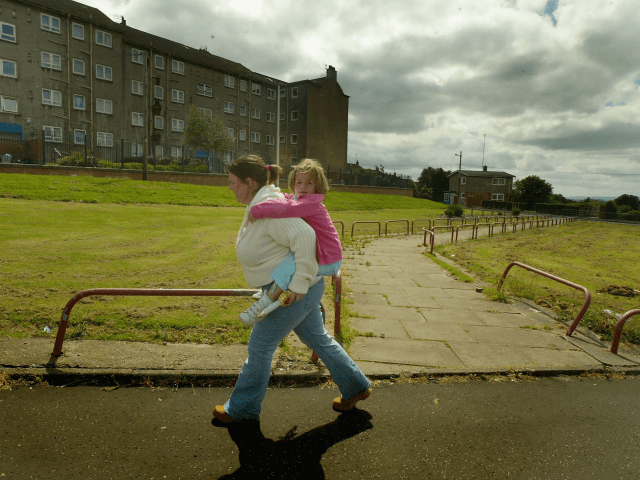Politicians have been urged to support the traditional family, as a report revealed that children from broken homes had double the rate of mental illness, poverty, or getting into trouble with law enforcement.
In a study which laid the “devastating impacts” of family breakdown bare, the Centre for Social Justice (CJS) blasted “political paralysis” on issues concerning the family, commenting that MPs’ “silence” on the matter “often stems from a fear of sounding judgemental or moralising”.
“Family breakdown is not simply an inevitable consequence of modern society,” the report said, pointing out that while Britain was “fast becoming a world leader” in the phenomenon, with only two-thirds of British under-15s living with both parents, the picture was much brighter in other OECD countries.
Across the OECD, the average was 84 percent, while 95 percent of under-15s in Finland still live with both parents, notes the think tank, asserting that “if figures showed such causal links on this scale in any other area of government, there would be a clamour for something to be done.”
Children whose parents split before they were 18 were more than twice as likely to end up homeless, and twice as likely to go to jail or get in trouble with the police, or to underachieve in their education, according to the study, which used figures from market research agency ComRes.
In addition to being almost twice as likely to experience mental health problems or alcoholism, children from broken homes were around 1.5 times more likely than those from intact families to end up in debt, or relying on social welfare programmes.
Attack on Marriage: ‘Revolution’ as ‘Conservative’ Govt to Introduce ‘No-Fault’ Quickie Divorce https://t.co/XjU4Yx9oko
— Breitbart London (@BreitbartLondon) September 9, 2018
Various reports have described the soaring prevalence of mental health problems among British youths as a “silent epidemic” and a “worsening crisis” in the past few years, with NHS data showing the number of under-18s being treated for conditions such as depression had risen a third in just two years, to 400,000 in 2018.
Media and research discussion of the topic, however, has tended to be focused entirely on issues such as peer pressure, “gender expectations”, and schoolwork as drivers behind the phenomena — with little or no mention of how the collapse of traditional families and societal values over recent decades may have hurt children’s well-being.
“We need to address our reluctance to talk about the role of family in policy-making and government spending if we are to address ‘the root causes of poverty’,” the CJS concluded in its report, which argues that while “matters concerning the family are personal and indeed sensitive… it is not enough for family breakdown and its effects to simply be a matter for statutory agencies and social services”.
Decline of Marriage: Majority of UK Brides Now Aged over 30 https://t.co/VFlPls4AW8
— Breitbart London (@BreitbartLondon) April 3, 2019
“The evidence is clear: family breakdown sits as the backdrop to so many broken lives, entrenching individuals in intergenerational cycles of poverty and instability. It can no longer be disregarded as mere ideology,” they continued.
“Family breakdown is a root cause of poverty and a social injustice that demands the attention and actions of those who walk the corridors of power.”
Ministers provoked backlash in recent weeks with plans insisting schools must promote same-sex and transgender families in the classroom, to children from the age of five.
Breitbart London reported last year on the so-called Conservative Party government’s proposals for a divorce law “revolution” which would enable “no-fault” break-ups and make it much quicker and easier for individuals to dissolve a marriage unilaterally.
Marriage Up, Abortion and Divorce Down as Hungary Chooses Family Support Over Mass Migration https://t.co/v3wPMRthNc
— Breitbart London (@BreitbartLondon) November 2, 2018

COMMENTS
Please let us know if you're having issues with commenting.